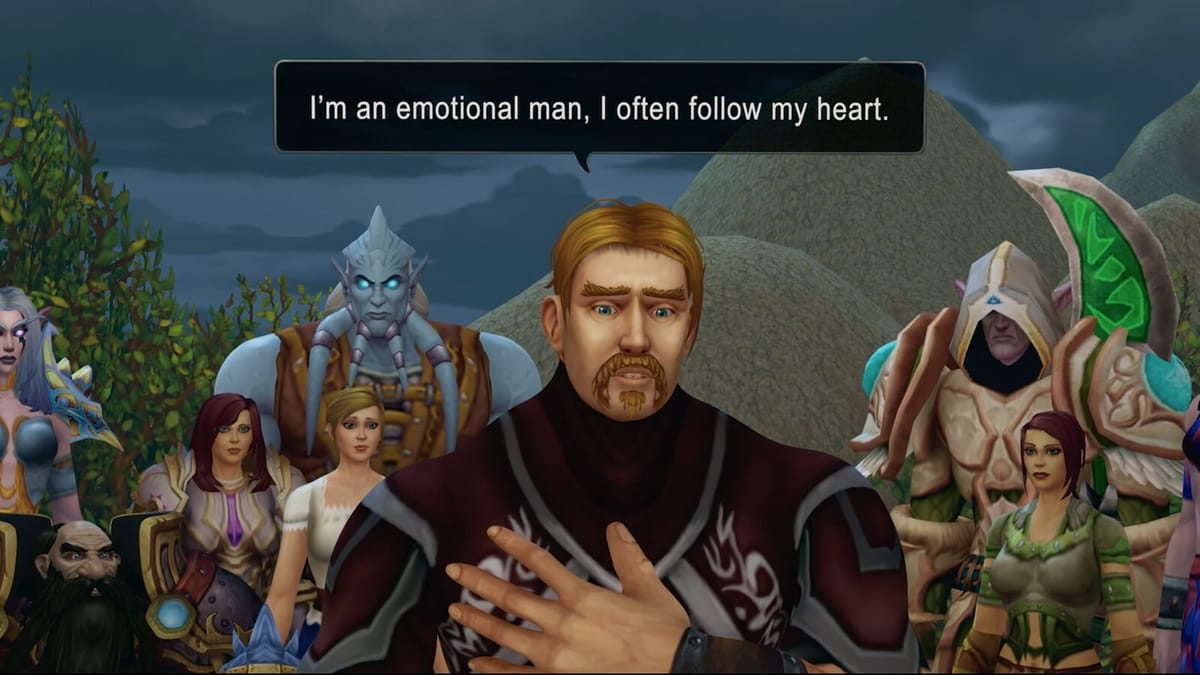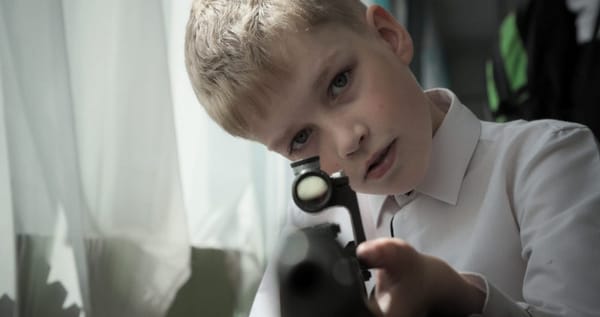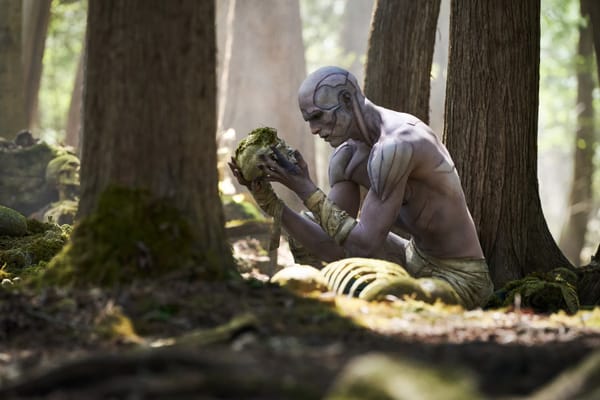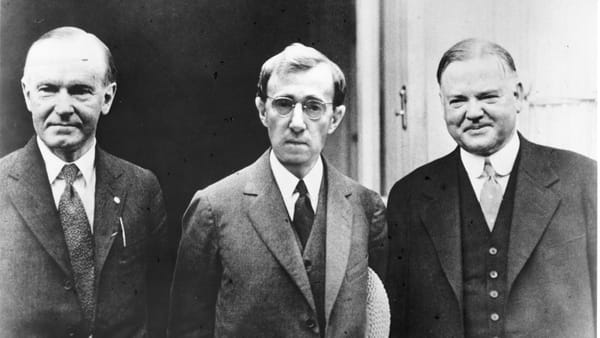What to Watch: "The Remarkable Life of Ibelin"
Plus: Brief reviews of new releases "Sorry, Baby" and "Oh, Hi!" and a heads-up on hard-to-find classics.

It won a directing prize and the audience award for World Documentary at Sundance 2024 and a Peabody Award on top of that, but I hadn’t gotten around to watching “The Remarkable Life of Ibelin” (⭐ ⭐ ⭐ 1/2, streaming on Netflix) until recently, after a handful of friends had mentioned stumbling across it on Netflix. And watching this Norwegian doc about the inner/online life of a man whose body had failed him, I understood why it's become a low-level word-of-mouth hit: It puts a viewer through an emotional wringer while posing open-ended questions about how technology allows us to share our truest selves. There’s plenty of evidence around us every day of how that’s a bad thing. “The Remarkable Life of Ibelin” is a reminder that it can be a good thing, too.
Mats Steen was an Oslo teenager with a form of muscular dystrophy known as Duchenne that weakened his muscles to the point where he was essentially locked inside his body by his final years, able only to use his hands to type. His parents worried that he spent too much time on the computer playing World of Warcraft – by their own estimate, he logged up to 20,000 hours in a virtual WoW universe known as Starlight – and they mourned the friendships and love they believed he would never know.
When Mats died at age 25 in 2014, then, his family was stunned to receive an outpouring of grieving emails from dozens and dozens of people who knew him from Starlight as a gentle red-haired giant named “Ibelin” – and who cherished him as a friend, mentor, advisor and, yes, boyfriend.
“The Remarkable Life of Ibelin” – called simply “Ibelin” when it played at Sundance, but I guess Netflix didn’t think that sold it enough – has visualized this secret life by having animators recreate the virtual reality of WoW/Starlight, its avatars and landscapes, while having actors read from the actual chat logs of Mats/Ibelin and his online acquaintances. The effect is comical, uncanny, weirdly moving; you wonder why there are so many sequences of Ibelin running through his digital world until you realize that’s the one thing Mats couldn’t do in real life.

The movie doesn’t depict him as a saint, and there’s plenty of evidence that Starlight became a place where Mats could work out a teenage rebellion – and then learn from his mistakes and mend fences – in a way he was unable to do in the analog world. But he also affected people’s actual lives for the better, advising one player-friend to bring her estranged autistic teenage son online into Starlight, where their relationship flourished; mother and son are interviewed in the flesh, both expressing gratitude for a connection that might never have happened otherwise.
Mats' parents and sister knew none of this – had no knowledge even that Mats had participated in an informational video on specialized computer equipment for the handicapped that was shown all over Norway – and the documentary glosses over the abyss that separated Mats' life from Ibelin’s. Could Steen have taken his own advice and invited his family into Starlight? Would they have forged a different, richer kind of relationship? Would they have “known” him better? The unaddressed tragedy of this movie is that the Steens couldn’t share their son’s real social and emotional personhood while he was alive.
That said, pretty much everyone interviewed in “The Remarkable Life of Ibelin” busts out in tears at points; I did, too, and unless you have a heart made of particle board, you probably will as well. The story is so strange, so affecting; the pixels so cartoonish and the feelings embedded in them so genuine. The sense of loss, of a good man bearing up under a cruel joke of a disease, is palpable. As I watched “The Remarkable Life of Ibelin,” I wondered where I had felt this kind of Nordic documentary sucker-punch before – the weirdness of human connections suddenly welling up with a profundity beyond the power of words and very nearly images to express – and realized it was “The Painter and the Thief” (⭐ ⭐ ⭐ ⭐, streaming on Kanopy, for rent on Amazon and Apple TV), a movie that I included on my Best Films of 2020 list and have recommended to Watch List subscribers. And whaddya know – both films are from the same director, Benjamin Ree, who has a unique knack for mining people’s interactions with mystery, grace and a gravitas that can prompt sudden unexpected weeping.
Department of Redundancy Department: There are two new lo-fi independent movies in theaters that I keep getting mixed up because they both debuted at Sundance in January, are both from talented women writer-directors, and they both have two-word titles that are essentially conversational in nature. With a comma. So, yes, easy to be confused, but luckily for moviegoers both are quite good, if quite different in tone and impact.

“Sorry, Baby” (⭐ ⭐ ⭐) is from Eva Victor (TV’s “Billions”) and is a plangent, empathetic drama about Agnes (Victor), a graduate student at a small-town college who is recovering – but not really – from being sexually assaulted by her professor (Louis Cancelmi), a trusted friend and mentor. The tone is oblique, humane, at times funny, the better to sketch out the quicksand of emotional PTSD that threatens to pull Agnes down into a drowning sadness. Victor juggles the chronology so that we see Agnes both before and after the event (which is not itself shown but stands as a hole in the memory), and if there’s sharp point to the tragedy in “Sorry, Baby,” it’s how the playful intellectual vibrancy of the Before has been snuffed out in the After, vanished into a fog of sorrow and self-recrimination. Agnes hasn’t been murdered, but her spirit has, and that almost feels worse. With Naomi Ackie (“Blink Twice,” “Mickey 17”) as Agnes’ best friend; Lucas Hedges (“Manchester by the Sea”) as a careful, congenial neighbor; and John Carroll Lynch, wonderful as a random stranger who helps Agnes get to the other side of a panic attack. “Sorry, Baby” isn’t about the assault so much as it’s about how a woman might reassemble the pieces of herself in the wake of her undoing, knowing the picture will never what it once might have been.

“Oh, Hi!” (⭐ ⭐ ⭐), by contrast, is a comedy, if an uneasy and often pleasurably goofy one. You know Molly Gordon, who plays Claire, Carmy’s on-again/off-again girlfriend in “The Bear”? She wrote the story (with screenwriter-director Sophie Brooks) and stars as Iris, who’s spending a getaway weekend in upstate New York with her new boyfriend Isaac (Logan Lerman). The AirBnB is gorgeous, the sex is great, everything’s rolling along nicely until… but I can say no more. I will note that a closet full of S&M gear plays a role, and that “Oh, Hi!” pivots gracefully from a romantic-comedy to crazy-person suspense before settling into a borderline absurdist farce that purrs along nicely. I will further note that Lerman’s character makes certain choices that had Mrs. Movie Critic calling him “50 Shades of Stupid” – not exactly a compliment but not exactly an insult, either.
Brooks, making her second feature film (and first since 2017’s “The Boy Downstairs”), juggles this mix of tones with confidence, and just when it feels like “Oh, Hi!” is stalling, she brings in Iris’ best friend Max (a deadpan Geraldine Viswanathan) and Max’s boyfriend Kenny (John Reynolds), who react to what is essentially a criminal situation with not-at-all-helpful advice. I wish Brooks had done more with David Cross as a persnickety neighbor, and you’ll find the ending either charming or completely ridiculous, but the movie rests on Gordon’s ability to make a desperately insecure woman seem simultaneously logical and clinically insane, and she just about pulls it off. Extra points for the deployment of what can only be called Chekhov’s ball-gag. (Warning: The trailer gives the game away, so avoid if you're really planning to see this.)





